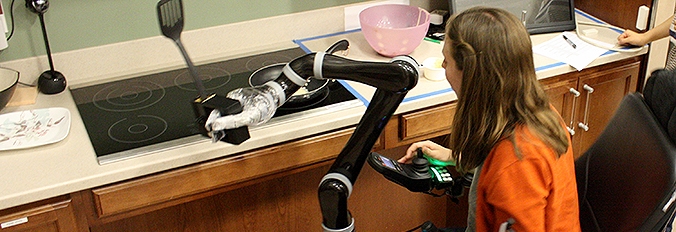Outreach

Check our Facebook page and our News page for more information.
State of the Science Workshops
HERL and Walter Reed Army Medical Center’s (WRAMC) Department of Physical Medicine and Rehabilitation joined forces to host the first State of the Science Workshop in 2005. With the continuous support of numerous organizations, this effort has grown into an entire symposia series, bringing workshops several times a year to WRAMC. The workshops deliver to healthcare professionals the latest "state of the science" information needed to treat people with disabilities, especially returning wounded soldiers. Rehabilitation experts from the VA, Department of Defense, universities, and private industry have gathered at the workshops to lecture on topics such as polytrauma, traumatic brain injury, and regenerative medicine. A broad audience composed of civilians, government officials, laymen, patients, family members, providers, academics, industry representatives, and researchers attend the free symposia. To date we have completed over twenty symposia which covered topics of assistive technology, spinal cord injury, polytrauma, amputation, ultrasound imaging, virtual reality in rehabilitation, and sensory impairment to name a sampling. We have attracted an average of 125 people per event and offered approximately 50 individuals continuing education credits per symposium. Additionally, through video teleconferencing, we are able to reach DoD medical personnel oversees (e.g., Landstuhl) and DoD, VA, and civilian participants throughout the continental United States.
Veterans Sporting Events
HERL has conducted research at the National Veterans Wheelchair Games (NVWG) and National Disabled Veterans Winter Sports Clinic (NDVWSC) since 2000 and 2006, respectively. These sporting events help us to interact with and serve our veterans who use wheelchairs, as well as disseminate our research results, educate wheelchair users on our work, and recruit people who use wheelchairs and who live outside of Pittsburgh to participate in our research studies. Residents from Walter Reed Army Medical Center (WRAMC) also participate in this effort.







